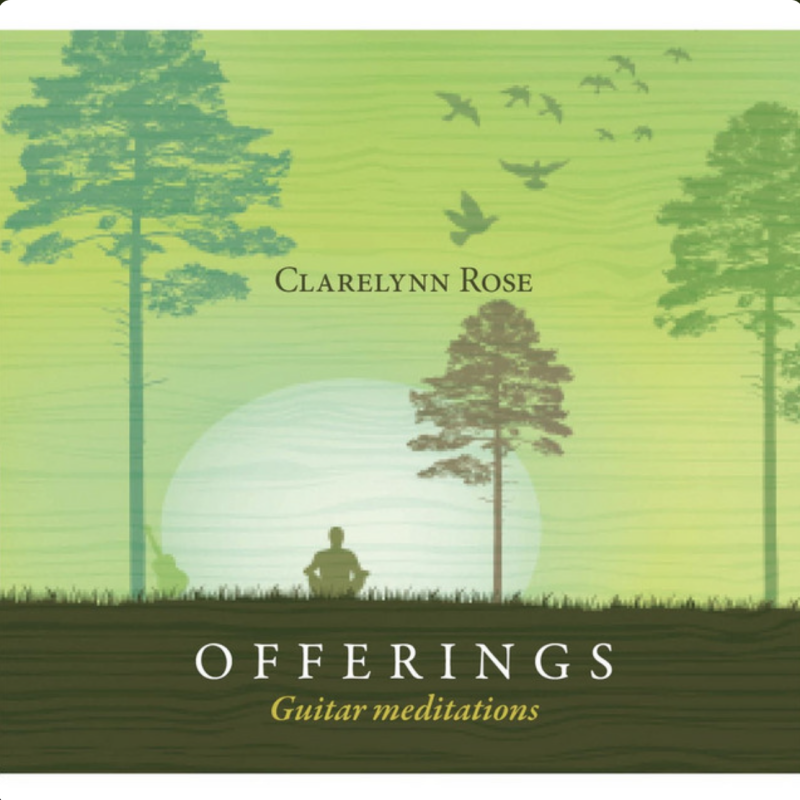
Some songs are written; others are quietly received from the world. Clarelynn Rose’s “Lake Oswego Moon” belongs to the latter category—a piece of music that feels less composed and more discovered, a faithful transcription of a perfect moment of solitude.
The setting was a 1999 guitar camp, a hive of artistic exchange featuring luminaries like Alex de Grassi and John Renbourn. Yet, for the Chicago-born, self-taught guitarist, the most significant collaboration of the trip wasn't with another person, but with the night itself. Amid the intense inspiration, a feeling of singular isolation—as the only woman on the course—pulled her away from the group and into a private audience with the natural world.
Armed with her guitar and an open heart, Clarelynn stepped outside into a warm summer evening. The scene was a masterclass in stillness: a vast, clear sky, the stark silhouette of trees against the horizon, and a full moon making its silent ascent over Lake Oswego. This wasn't a backdrop for inspiration; it was the co-writer.
Eschewing formal music theory, chord charts, and even standard tuning, Clarelynn’s process is one of intuitive translation. On that night, her tools were her ear, her emotional response, and the unique sonic palette of her alternate tunings—a personal musical language she describes as being built on "nature-based tunings, textures, shapes, and images."
Under that moon, the technicalities fell away. The key phrases of the song emerged not from a desire to impress, but from a need to communicate the profound peace she witnessed. The guitar became her medium to translate visual beauty into auditory calm, to capture the feeling of the warm air and the moon's gentle glow in the resonance of steel strings.
“Lake Oswego Moon” endures as more than a track; it is an aural photograph. To listen is to be granted access to that specific time and place—to feel the quiet awe of that Oregon night. It stands as a testament to Clarelynn Rose’s artistic philosophy: that the most honest music is born not from practice rooms, but from sacred, solitary conversations between a musician and the world.
Añadir comentario
Comentarios